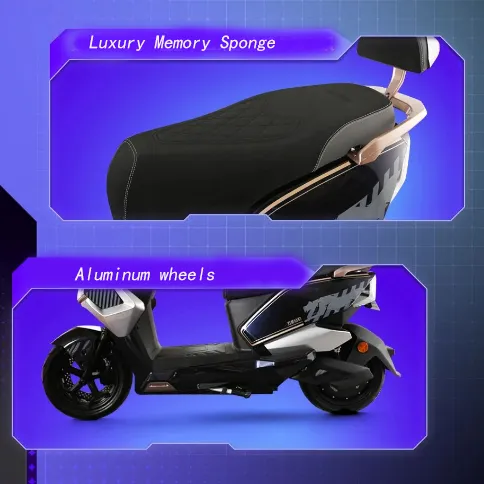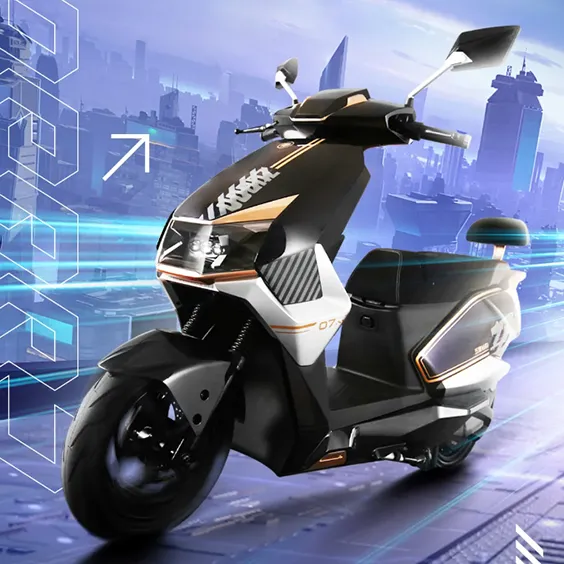A Glimpse Into the Future of Urban Mobility
Electric motorcycles are quickly becoming a defining feature of modern transportation. With their sleek design, reduced environmental impact, and technological enhancements, they have emerged as a compelling alternative to traditional gas-powered bikes. In 2025, electric motorcycles are not just about going green—they're about performance, innovation, and redefining how we commute.
Key Features to Look for in Electric Motorcycles
Battery Range and Charging Time
One of the most critical aspects of electric motorcycles is battery performance. When considering a new model, it’s essential to evaluate how far it can travel on a single charge and how long it takes to recharge. Most 2025 electric motorcycles offer ranges between 100 to 250 miles per charge, depending on battery size and riding conditions. Fast-charging options are also becoming more common, allowing a full charge in as little as an hour.
Performance and Speed Capabilities
Speed and acceleration are no longer exclusive to gasoline engines. Many electric motorcycles now feature instant torque and smooth acceleration, making them a thrilling ride. In 2025, some models rival the speed of top-tier gas-powered motorcycles while offering a quieter and smoother experience.
Leading Categories of Electric Motorcycles
Commuter Models for City Travel
Commuter electric motorcycles are designed for efficiency, comfort, and cost-effectiveness. These bikes usually offer moderate range, lightweight frames, and simplified controls—perfect for navigating through city traffic. In 2025, they often come with integrated smartphone apps and GPS tracking for added convenience.
High-Performance Models for Enthusiasts
For thrill-seekers, performance-focused electric motorcycles offer powerful motors, advanced suspension systems, and aerodynamic frames. These models cater to riders looking for speed and style, combining eco-friendly technology with racing-grade features. In 2025, many of these bikes support customizable riding modes for better control and adaptability.

Advantages of Choosing Electric Motorcycles
Lower Operating Costs
Electric motorcycles require significantly less maintenance than their gasoline counterparts. With fewer moving parts and no need for oil changes, brake pad replacements, or fuel, long-term ownership becomes much more economical. Battery warranties and improved reliability further reduce expenses.
Environmental Benefits
Riding electric motorcycles contributes to cleaner air and reduced greenhouse gas emissions. As urban areas push for greener transportation, switching to electric motorcycles is a proactive way to align with sustainability goals. The reduced noise pollution also contributes to a quieter and more pleasant city environment.
Smart Technologies in 2025 Electric Motorcycles
Connectivity and Mobile Integration
Modern electric motorcycles often come equipped with Bluetooth connectivity, touchscreen displays, and real-time diagnostics. Riders can monitor battery levels, plan routes, and receive maintenance alerts—all from their smartphones. This integration makes riding more intuitive and enjoyable.
Safety Enhancements
Advanced driver-assistance systems (ADAS) are making their way into electric motorcycles. Features like adaptive cruise control, blind-spot detection, and anti-lock braking systems enhance rider safety. In 2025, many electric motorcycles offer built-in sensors and AI-based systems for predictive hazard detection.
Things to Consider Before Buying
Budget and Total Ownership Cost
Electric motorcycles can range from a few thousand dollars to premium prices depending on the model and features. Consider your budget not only for the purchase price but also for insurance, charging equipment, and battery replacement over time. Some governments offer incentives or tax rebates to offset the initial cost.
Charging Infrastructure and Accessibility
Before buying, check the availability of charging stations in your area or along your regular routes. Having access to fast-charging options at home or in public locations will significantly enhance the ownership experience. Some models even offer removable batteries for convenient indoor charging.
Trends and Innovations to Watch
Integration with Renewable Energy
An exciting trend is the integration of electric motorcycles with home solar systems. In 2025, some owners are charging their motorcycles using solar panels, making their daily commute nearly carbon-free. This synergy between clean energy and transport is shaping the future of urban mobility.
Lightweight Materials and Design
Manufacturers are exploring the use of carbon fiber, magnesium, and other lightweight materials to improve efficiency and handling. These advancements not only enhance performance but also contribute to better battery range and overall ride comfort.
FAQ
What is the average lifespan of electric motorcycle batteries?
Most electric motorcycle batteries last between 5 to 10 years, depending on usage patterns and charging habits. Regular maintenance and avoiding deep discharges can help extend battery life.
Can I ride electric motorcycles in the rain?
Yes, electric motorcycles are built to withstand various weather conditions, including rain. However, it’s important to follow manufacturer guidelines for wet weather usage and charging.
How fast can electric motorcycles go?
Speeds vary by model, but many 2025 electric motorcycles can reach speeds between 70 to 120 mph. High-performance models may go even faster, rivaling traditional sport bikes.
Are electric motorcycles suitable for long-distance travel?
While early models were limited in range, many 2025 electric motorcycles are now capable of long-distance rides. With improved battery capacity and growing charging infrastructure, longer trips are increasingly feasible.

